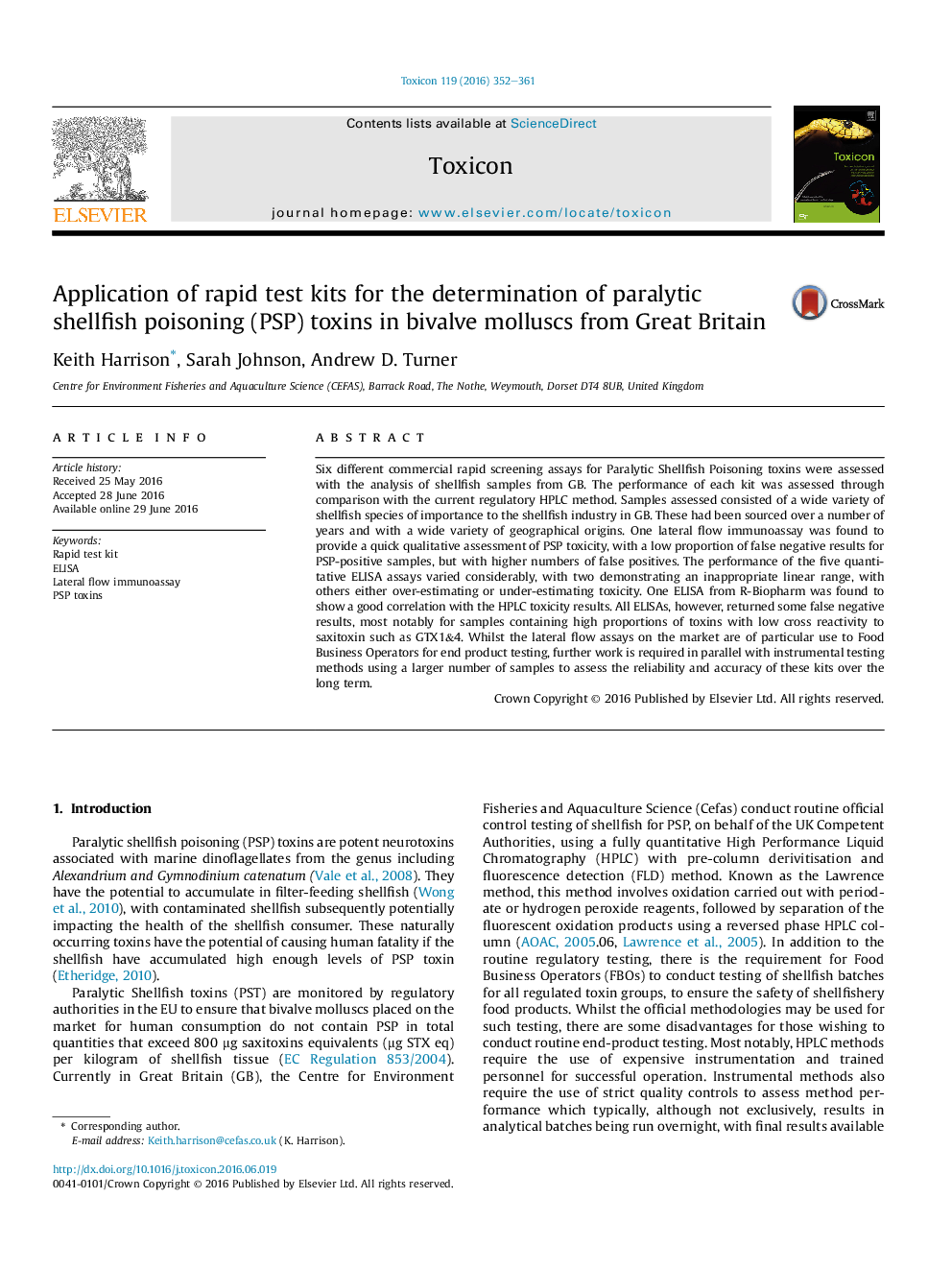| Article ID | Journal | Published Year | Pages | File Type |
|---|---|---|---|---|
| 2064021 | Toxicon | 2016 | 10 Pages |
•PSP toxins in Great Britain.•Application of immunochromatography•ELISA test kits.•Comparison of rapid methods.
Six different commercial rapid screening assays for Paralytic Shellfish Poisoning toxins were assessed with the analysis of shellfish samples from GB. The performance of each kit was assessed through comparison with the current regulatory HPLC method. Samples assessed consisted of a wide variety of shellfish species of importance to the shellfish industry in GB. These had been sourced over a number of years and with a wide variety of geographical origins. One lateral flow immunoassay was found to provide a quick qualitative assessment of PSP toxicity, with a low proportion of false negative results for PSP-positive samples, but with higher numbers of false positives. The performance of the five quantitative ELISA assays varied considerably, with two demonstrating an inappropriate linear range, with others either over-estimating or under-estimating toxicity. One ELISA from R-Biopharm was found to show a good correlation with the HPLC toxicity results. All ELISAs, however, returned some false negative results, most notably for samples containing high proportions of toxins with low cross reactivity to saxitoxin such as GTX1&4. Whilst the lateral flow assays on the market are of particular use to Food Business Operators for end product testing, further work is required in parallel with instrumental testing methods using a larger number of samples to assess the reliability and accuracy of these kits over the long term.
